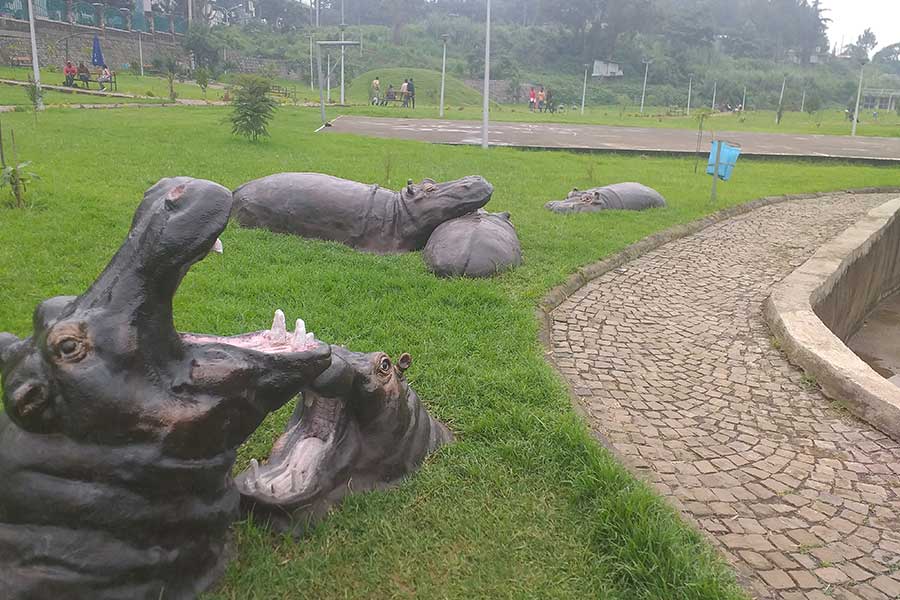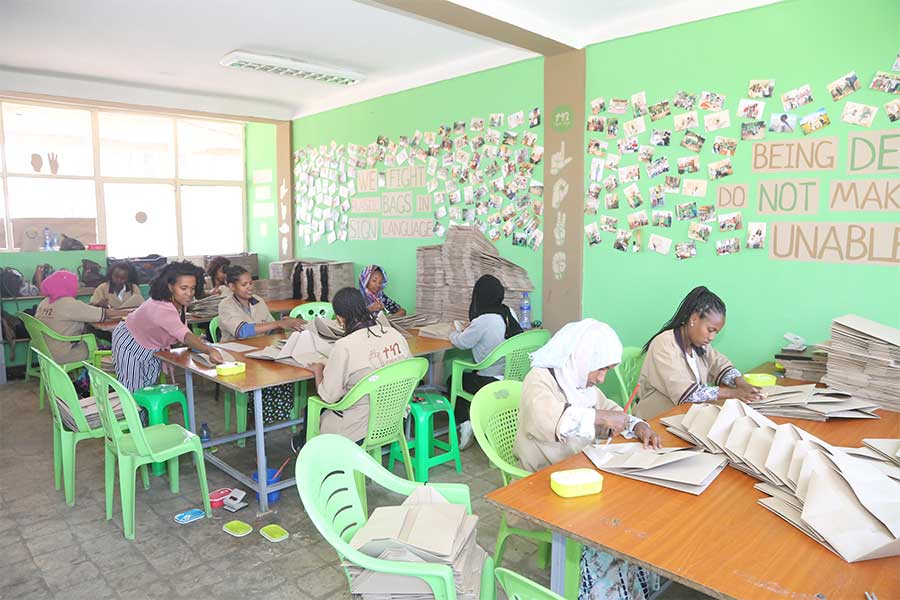
Radar | Sep 14,2019
Dec 31 , 2022
By Bright Simons
The price of Africa’s contribution to meeting this emissions target is estimated at 1.3 trillion dollars, which is what African leaders and their advisers are seeking from the rest of the world. But if the affluent paid the developing continent to build more carbon-intensive industries instead, the world would achieve its targets exceptionally. writes Bright Simons. He is the founder and president of mPedigree, a social enterprise working on technology reform of supply chains, and an honorary vice president of IMANI, a think tank based in Accra.
Many in the global development community impel rich countries to transfer large sums of money to developing countries and help them shift to cleaner energy without impeding economic growth. This elevates raises important economic questions that do not receive enough attention.
Consider Africa, the world’s second-largest continent is said to have contributed only one percent of historic carbon emissions. Today it generates only four percent of global emissions. Its annual anthropogenic carbon dioxide emissions are equivalent to 1.4 billion tons, 35pc of which are from South Africa.
Africa’s carbon dioxide emissions are just 20pc of the per capita global average. According to the Intergovernmental Panel on Climate Change, the world needs to cut nearly 10 billion tons of CO2 annually to meet the 2030 target of a “maximum increase of two degrees centigrade". The stark reality is that taking the continent to net-zero emissions would burden Africans with a significant proportion of the global cost.
The price of Africa’s contribution to meeting this emission target is estimated at 1.3 trillion dollars, which is what African leaders and their advisers are seeking from the rest of the world. But, what if the affluent paid the continent to build more carbon-intensive industries instead?
It sounds outrageous until one realizes that Africa’s inward foreign direct investment totals about 80 billion dollars annually. Based on current benchmarks for the carbon intensity of industrialization, Africa could add three percentage points to its annual economic growth with a corresponding increase in emissions of roughly 100pc. The FDI requirement for this boost is around 40 billion dollars; we could even pad the number to 80 billion dollars.
By doubling emissions and FDI, the 4.6pc average annual growth in the last few decades could rise to nearly eight percent, potentially owing to multiplier effects. At this rate, Africa would double its per capita income by 2030, which could lift 90pc of the population out of poverty. This will be excellent news if the environmental Kuznets curve holds in the long run, with CO2 emissions continuing to decline in many countries as national income rises.
Africa’s institutional environment will likely remain more receptive to polluting industries than green industries, as the latter requires higher skills, capital, and purchasing power. Given Africa’s small net contributions, it may be sensible to tolerate longer horizons for decarbonization on the continent because richer countries have a more vital comparative advantage in switching to green industries.
Setting aside moral imperatives, economic analysis can produce some counterintuitive results. Many people are skeptical about the basis of “green aid” to the continent. Considering that its non-anthropogenic emissions are far higher than total emissions in the US, the world’s largest overall polluter, others question what marginal reductions in manmade emissions in Africa would mean in the broader scheme.
Institutional receptivity can be generalized to encompass the full context of institutional quality. Some argue that previous “normal aid” episodes to Africa have had mixed results. “Climate finance” is not a new category of aid but a rebranding of money from the same old pots of development aid.
What basis is there for believing that 1.3 trillion dollars in “green aid” is likely to have generally positive outcomes?
Such complex trust factors complicate crafting green aid to finance net-zero transitions in places like Africa.
The inertia of aid effectiveness supports promoting “normal FDI” with no green strings attached. The continent has already adapted to such financing. A new paradigm of green aid requiring deep institutional reform has already met some entrenched skepticism, even if it has not been voiced openly—the growing number of frameworks to tackle climate-finance corruption hints at this.
Private investors could act to “green FDI" on their own, but coordination in transnational private markets is difficult, complicating any such shift. New multilateral public-private partnerships are required to reconcile the moral, political, and economic trade-offs, but progress is slow, as we have seen with the Green Climate Fund.
The institutionalization of these new structures will take time. In their absence, there is strong reason to doubt that large amounts of green financing will go to the developing world and Africa to pay for a climate transition. This pessimism is rarely expressed in polite company.
But why keep up the charade if the prospects are so poor?
PUBLISHED ON
Dec 31,2022 [ VOL
23 , NO
1183]


Radar | Sep 14,2019

Viewpoints | May 18,2024

Radar | Mar 12,2022

Fortune News | Jul 28,2024

Viewpoints | May 28,2022

Commentaries | Oct 05,2019

Commentaries | Jul 05,2025

Viewpoints | Jul 29,2023

Featured | Nov 02,2019

Commentaries | Jan 03,2021

Photo Gallery | 177241 Views | May 06,2019

Photo Gallery | 167446 Views | Apr 26,2019

Photo Gallery | 158078 Views | Oct 06,2021

My Opinion | 136976 Views | Aug 14,2021
Commentaries | Oct 25,2025

Dec 22 , 2024 . By TIZITA SHEWAFERAW
Charged with transforming colossal state-owned enterprises into modern and competitiv...

Aug 18 , 2024 . By AKSAH ITALO
Although predictable Yonas Zerihun's job in the ride-hailing service is not immune to...

Jul 28 , 2024 . By TIZITA SHEWAFERAW
Unhabitual, perhaps too many, Samuel Gebreyohannes, 38, used to occasionally enjoy a couple of beers at breakfast. However, he recently swit...

Jul 13 , 2024 . By AKSAH ITALO
Investors who rely on tractors, trucks, and field vehicles for commuting, transporting commodities, and f...

Oct 25 , 2025
The regulatory machinery is on overdrive. In only two years, no fewer than 35 new pro...

Oct 18 , 2025
The political establishment, notably the ruling party and its top brass, has become p...

Oct 11 , 2025
Ladislas Farago, a roving Associated Press (AP) correspondent, arrived in Ethiopia in...

Oct 4 , 2025
Eyob Tekalegn (PhD) had been in the Governor's chair for only weeks when, on Septembe...

Oct 25 , 2025 . By YITBAREK GETACHEW
Officials of the Addis Abeba's Education Bureau have embarked on an ambitious experim...

Oct 26 , 2025 . By YITBAREK GETACHEW
The federal government is making a landmark shift in its investment incentive regime...

Oct 26 , 2025 . By NAHOM AYELE
The National Bank of Ethiopia (NBE) is preparing to issue a directive that will funda...

Oct 26 , 2025 . By SURAFEL MULUGETA
A community of booksellers shadowing the Ethiopian National Theatre has been jolted b...